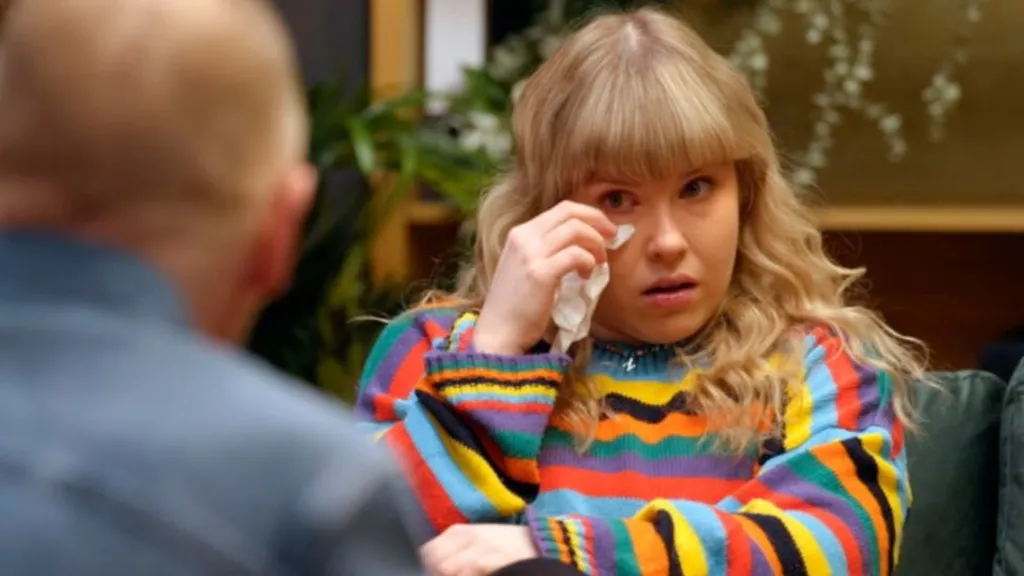Nicole enters the therapist's room and clutches what she calls her hugging pillow. She admits to being nervous about sitting down with a stranger to discuss her mental health.
She is 31, lives in London and works as chiropractic assistant. She suffers from anxiety when she drives.
"There are so many things that so quickly go through my head," she says.
"How far away is it? What is the route? I somehow forget how to drive."
She suffers from panic attacks and her fear of driving means she is constantly cancelling plans.
But, over the course of six sessions with psychotherapist Owen O'Kane, it becomes clear her problems are much deeper than just a fear of driving.
Digging around in the mind
Every week, one in six of the UK population experience mental health problems such as depression and anxiety and every year more than 1.2 million people seek help from the NHS talking therapies service, with many more paying for support privately.
This form of therapy is most commonly used for anxiety and depression, but can also help with a range of other problems, including body image dysmorphia, obsessive compulsive disorder and post traumatic stress disorder. It does not work for everyone: research suggests one-third of people do not benefit.
The BBC has followed 12 people, featured in the series Change Your Mind, Change Your Life, who each received six support sessions from therapists.
The therapists have used a combination of different talking therapy approaches, including cognitive behavioural therapy which focuses on changing the way we think and behave, alongside other techniques to improve relationships and process trauma.
What it reveals is striking: How understanding and learning to manage the mind has the power to transform lives.
"You're not stuck with the brain you've got," says Owen O'Kane, who has worked in the field for 25 years.
He describes his job as like detective work: "People come with what seems to be a reasonable story, but the interesting thing is that very often the story and emotions don't match. I guess what we are doing is digging around a little bit."
'I completely hated myself'
Over their sessions, Owen digs deeper into Nicole's anxiety. At one point she weeps. She admits in the past she has "completely hated" herself. She worries about what people think of her and is socially anxious: "I don't feel good enough to be there. I might say something wrong. I need people to like me."
Owen questions why she feels like this: "As human beings we like the nice emotions. We like feeling happy, joy, being in love." but he says some people try to avoid or suppress emotions like fear, dread and sadness, and that can cause anxiety. Instead, he says it is healthier to accept them and accept them as safe.
When people get to that point, he says, they start to feel empowered: "They realise they're not going to be overwhelmed."
Speaking outside the therapy room, Nicole says: "I'm shocked. He got my number straight away. I would see vulnerability as a negative thing, but it's not."
Asked to describe herself she uses words such as kind, thoughtful, determined and enthusiastic: "I am not a bad person," she tells Owen.
She says she has learned a lot: "Most importantly I found I wasn't being kind to myself. That was really eye-opening."
Owen says this is typical of many people he treats: "When people get to these crossroads, when they wake up and realise what they are doing, that's a gold dust moment for me."


